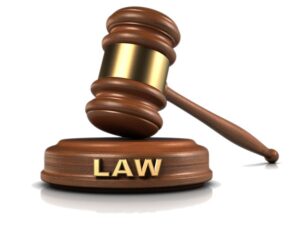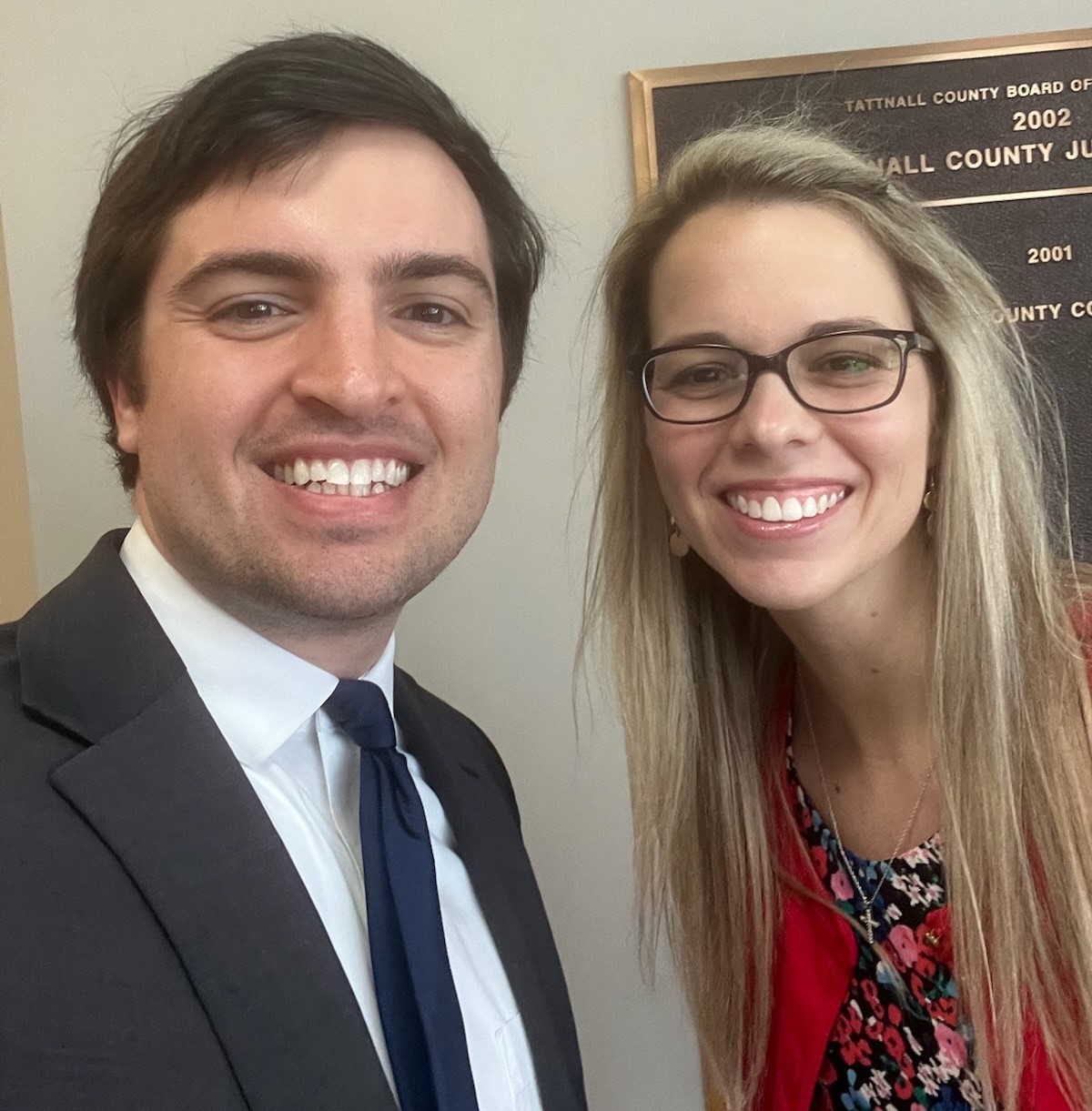
Georgia Journalism Attorney Ward Evans successfully briefed and argued a motion in Tatnall County State Court to allow The Georgia Virtue to audio record a civil corruption trial, while Clinic fellow Christina Lee obtained an order to unseal documents filed in Gwinnett County Superior Court.

Rule 22 Motion to Record
Evans represented reporter and publisher Jessica Szilagyi (both pictured left) of the independent news outlet The Georgia Virtue (TGV) in obtaining permission to record a civil trial. The trial involves allegations of corruption and malfeasance by former Georgia Department of Corrections officials involving a botched murder-for-hire. TGV requested to record the trial in order to further its in-depth reporting on these matters of intense public concern. The Tattnall County State Court rejected the defendants’ objections to recording, as well as their request that the court limit what TGV can do with the recording. Uniform Superior Court Rule 22 governs requests to record proceedings in Georgia state courts.

Rule 21 Motion to Unseal
Lee represented the NYU Technology Law and Policy Clinic in persuading the Gwinnett County Superior Court to unseal documents filed in support of summary judgment in Walters v. Open AI, a defamation case arising from hallucinations by ChatGPT. Lee argued that access to these records is essential to the public’s understanding of the issues and outcome in the litigation. The brief in support of the motion was written by Jake Karr of the NYU Clinic. Uniform Superior Court Rule 21 governs sealing records in Georgia state courts.

The Issue
Government Transparency
Georgia’s legislature finds that transparent government is essential to a free, open, and democratic society. The state’s “sunshine laws” guarantee access to the public records and public meetings of local and state government agencies. The First Amendment and Georgia’s uniform superior court rules also protect the public’s right to observe court proceedings and review court…
Explore Issue
The Issue
Media Law
The First Amendment guarantees a free press, meaning journalists are able to express any opinions they want about the government, even criticisms. However, journalists are often hindered in their ability to gather and publish news through the threat of lawsuits, subpoenas, and criminal prosecution. Read more about our support for student and professional journalists here.
Explore Issue